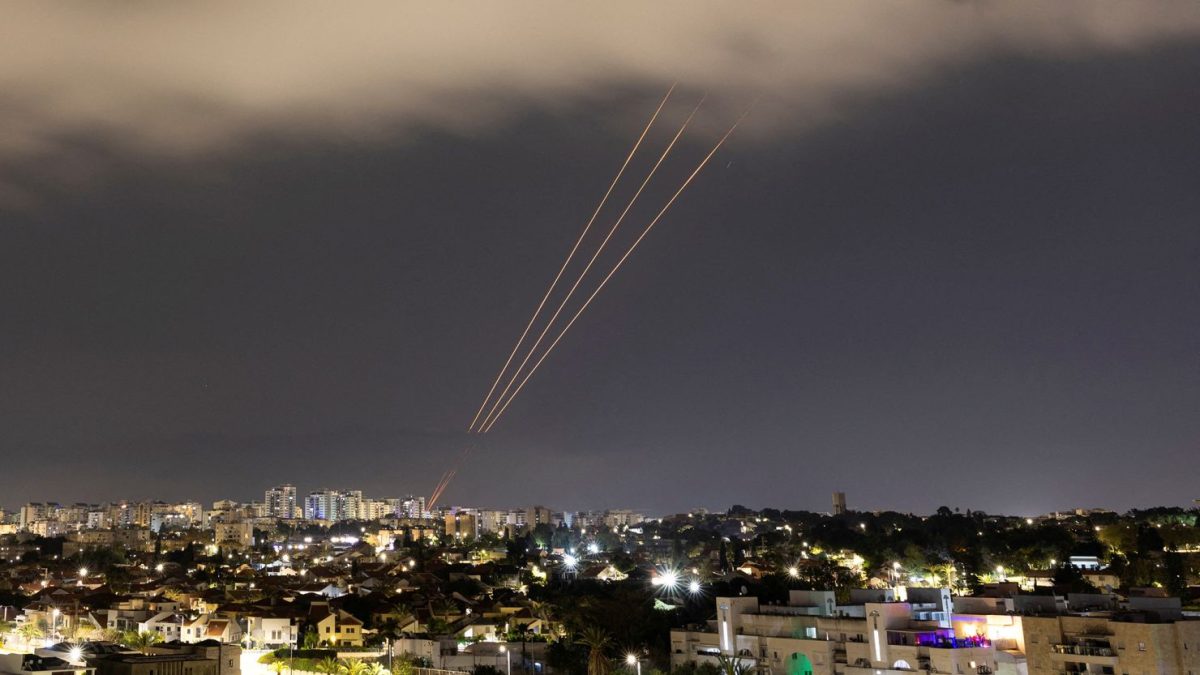The bombing attempt
“Whoever strikes us, we will strike them,” claims Israeli Prime Minister, Benjamin Netanyahu, in response to the unprecedented attack that took place early Sunday against military devices launched by the Islamic Republic of Iran.
At around 2 a.m. on April 14th, over 300 launches of Iranian military devices had entered Israel, bringing the entire country to fear. These launches included approximately 170 military drones, 120 ballistic missiles, and 30 cruise missiles. Aid forces spread throughout Israel as soldiers began evacuating people from their homes, and helping escort and support any injured. Residents near the Syrian and Lebanese border, as well as the southern towns of Dimona, Nevatim, and resorts in Eilat, were evacuated into secured, protective areas. Many military devices had been aimed towards two of the strongest pillars crucial to Israel’s economy, Dimona and Nevatim, standing as Israel’s main nuclear facility and one of the major Israeli air bases.
Out of all 300 launches of Iranian military devices, 99% of them were intercepted, and there weren’t any large-scale casualties aside from a 7-year-old girl in a Bedouin Arab town, located in southern Israel, suffering serious injuries from a speculated missile strike. However, authorities are looking into her case of injuries. Daniel Hagari, an Israeli Rear Adm., stated that the interception had been “a very significant strategic success.”
The reason behind the surprise attack
Iran and Israel weren’t on friendly terms prior to the surprise attack. Iran ended its alliance with Israel after the start of the Hamas war in Gaza. Being one of the major backers providing support for Palestinians, Iranian forces went against Israeli forces.
On April 1st, Iran suffered an Israeli attack on an airbase in Syria that killed 2 generals, and 5 officers. Iran had accused Israel of this, and Israel officials paid no mind, and did not make a comment about the event. They didn’t deny or confirm it. Enraged, Iran vowed revenge against Israel, leading up to the 300 launches of Iranian military devices in Israel.
Relations to other countries
In a statement from the U.S President, Joe Biden, he confirmed “America’s ironclad commitment,” of loyalty to Israeli forces and a promise of protection for their country—in contrast of Biden’s perspective of the ongoing Hamas war in Gaza, as Israeli forces continue to terrorize Palestinians relentlessly. During the launch attack, Biden sent U.S military aircraft and devices to support Israel in intercepting the missles. America has been distraught over Biden’s actions, posting and creating heated debates online due to his promise for Israel, and in regards to the current state of Palestine.
In response to President Biden’s statement, Iran issued a clear, blunt warning to both Israel and the U.S over the media: “Should the Israeli regime make another mistake, Iran’s response will be considerably more severe… It is a conflict between Iran and the rogue Israeli regime, from which the U.S MUST STAY AWAY!”
In contrast to Biden’s approach to the subject and affirming loyalty to Israel, other United Nations chiefs shook their heads in condemnation at the issue. Other countries have expressed great disapproval for both Iran and Israel. Germany stated that Iran and anyone affiliated “must stop immediately.” In stark similarity, France had replied by saying Iran “is risking a potential military escalation,” whilst Britain had called the Iranian attack simply “reckless.” Although multiple leaders from different countries have begun encouraging Israel to restrain in retaliating against Iran, no further actions have been taken against the issue besides the United States.









